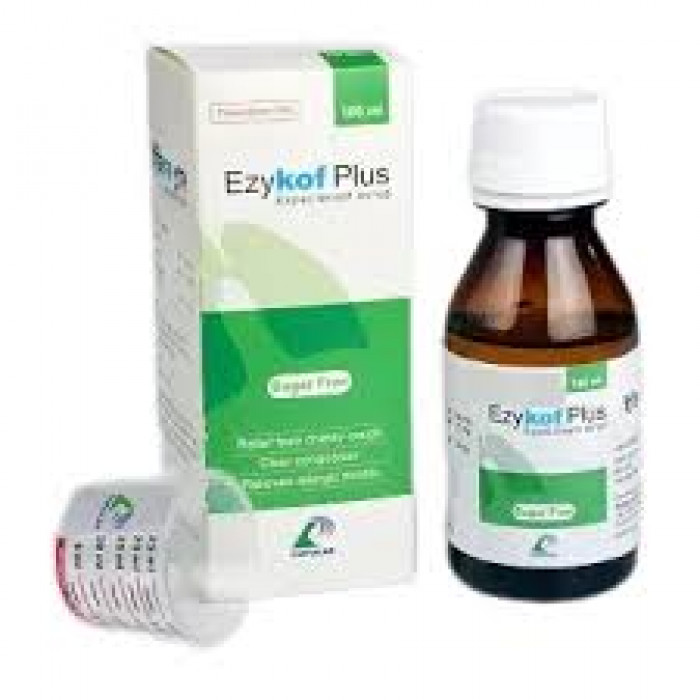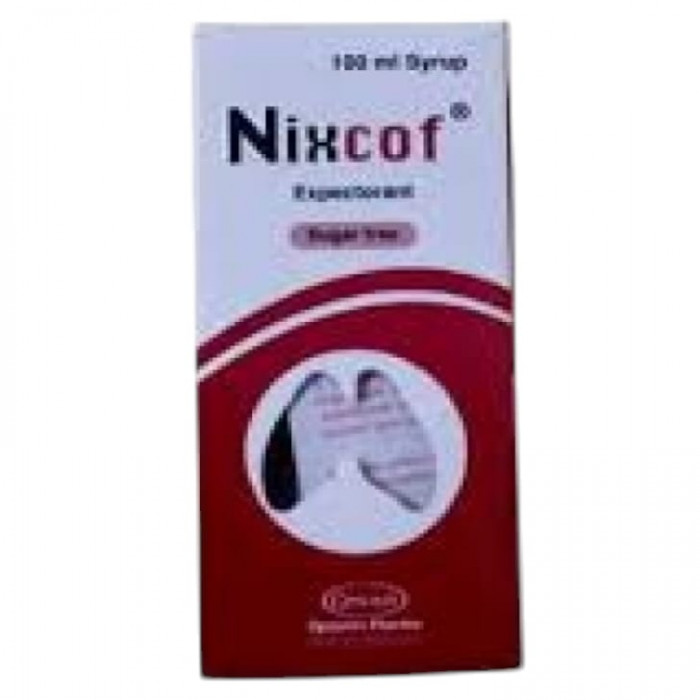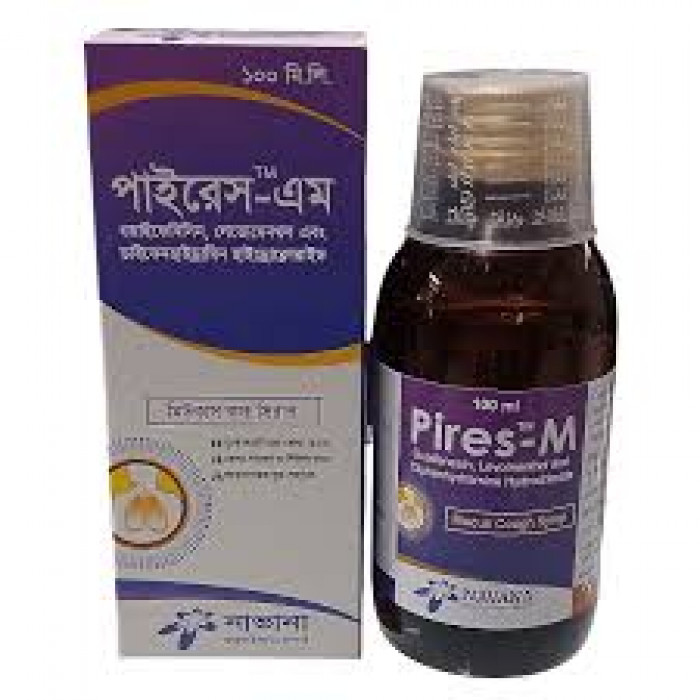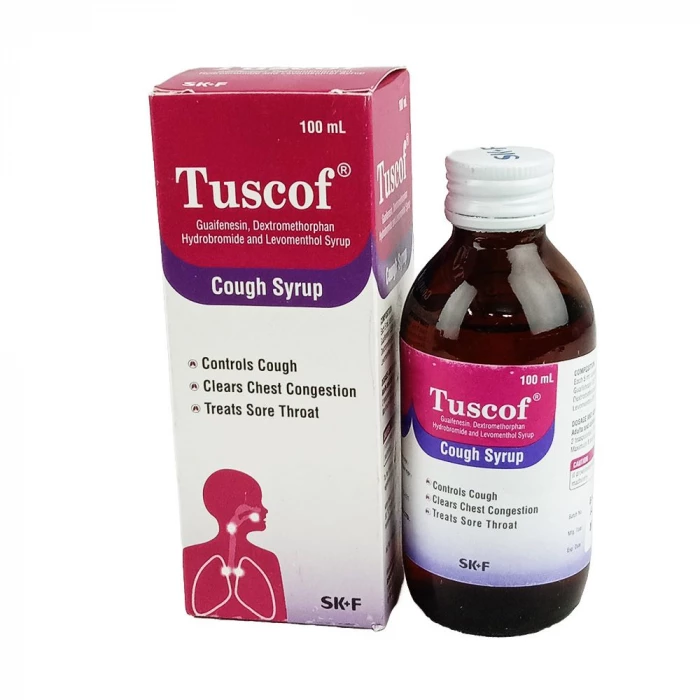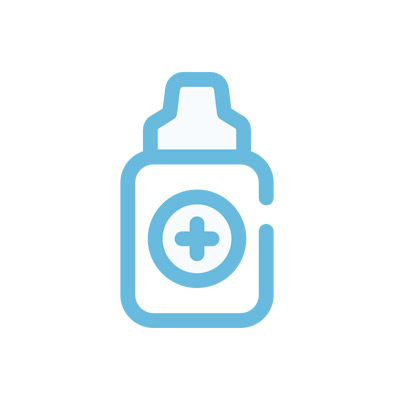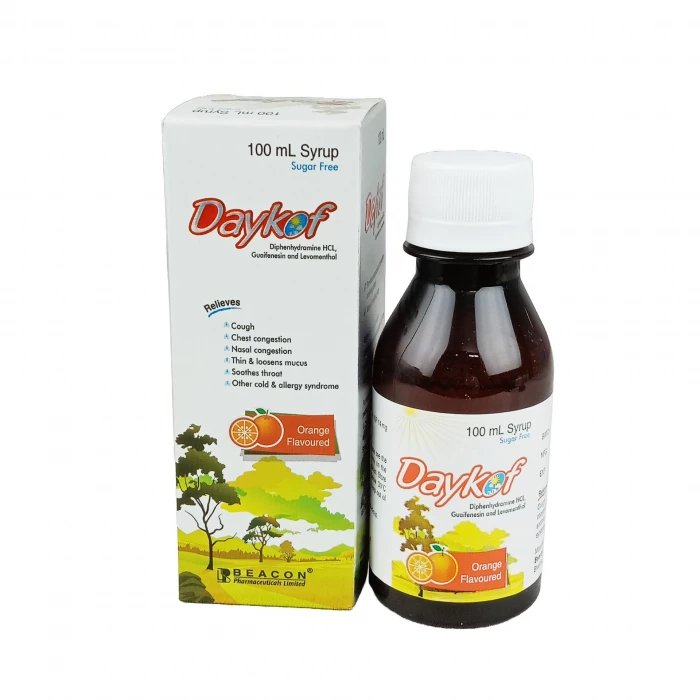
✔ 100% Authentic Product
👁️ Currently Viewing 3447
Daykof Syrup 100ml
Diphenhydramine + Guaiphenesin + Levomenthol Relieves
- Cough
- Chest Congestion
- Nasal Congestion
- Soothes Throat
- Thins And Loosens Mucus
- Other cold And Allergy Symptoms
Discount
Price: ৳ 78
MRP:
৳
82
5%
Off

100% Genuine Products, Guaranteed

Safe & Secure Payments, Always

Fast, Secure & Efficient Delivery

Proper Packaging
 Cash on Delivery - All over Bangladesh
Cash on Delivery - All over Bangladesh Regular Delivery - 12-24 Hours, Dhaka City* Charge Tk.39-59
Regular Delivery - 12-24 Hours, Dhaka City* Charge Tk.39-59 Regular Delivery - 24-48 Hours, Other Cities* Charge Tk.99-110
Regular Delivery - 24-48 Hours, Other Cities* Charge Tk.99-110
 ফ্রি ডেলিভারিঃ - ৯৯৯ টাকা+ অর্ডারে, ঢাকা
শহরে
ফ্রি ডেলিভারিঃ - ৯৯৯ টাকা+ অর্ডারে, ঢাকা
শহরে ফ্রি ডেলিভারিঃ - ২৯৯৯ টাকা+ অর্ডারে, ঢাকার
বাহিরে
ফ্রি ডেলিভারিঃ - ২৯৯৯ টাকা+ অর্ডারে, ঢাকার
বাহিরে
100% Genuine Products, Guaranteed
Safe & Secure Payments, Always
Fast, Secure & Efficient Delivery
Proper Packaging
 Cash on Delivery - All over Bangladesh
Cash on Delivery - All over Bangladesh Regular Delivery - 12-24 Hours, Dhaka City* Charge Tk.39-59
Regular Delivery - 12-24 Hours, Dhaka City* Charge Tk.39-59 Regular Delivery - 24-48 Hours, Other Cities* Charge Tk.99-110
Regular Delivery - 24-48 Hours, Other Cities* Charge Tk.99-110 ফ্রি ডেলিভারিঃ - ৯৯৯ টাকা+ অর্ডারে, ঢাকা
শহরে
ফ্রি ডেলিভারিঃ - ৯৯৯ টাকা+ অর্ডারে, ঢাকা
শহরে ফ্রি ডেলিভারিঃ - ২৯৯৯ টাকা+ অর্ডারে, ঢাকার
বাহিরে
ফ্রি ডেলিভারিঃ - ২৯৯৯ টাকা+ অর্ডারে, ঢাকার
বাহিরে
✅ Description:
Daykof Syrup, an antihistamine, relieves symptoms of hay fever, allergy, and the common cold. Symptoms may include itching, rash, watery eyes, runny nose, itchy eyes or nose, throat, cough, and sneezing. It also prevents and treats nausea, vomiting, and dizziness caused by motion sickness. It can also help you relax and fall asleep.
Daykof Syrup provides symptomatic relief of allergic symptoms caused by histamine release which include nasal allergies and allergic dermatosis; can be used for mild nighttime sedation; prevention of motion sickness and as an antitussive; has antinauseant and topical anesthetic properties; treatment of antipsychotic-induced extrapyramidal reactions.
You should not use Daykof Syrup If you have or are:
- Allergic to it
- Liver or kidney disease
- Breathing disorder
- Blockage in the digestive tract
- Urinary problems
- Thyroid disorder or
- Chronic bronchitis
Daykof Syrup can be taken with or without food. Your dosage is based on your medical condition, age, and response to treatment. To prevent motion sickness or help you sleep, take the dose 30 minutes before travel or bedtime.
Take as directed; do not exceed the recommended dose. Avoid use of other depressants, alcohol, or sleep-inducing medications unless approved by the prescriber. You may experience drowsiness or dizziness (use caution when driving or engaging in tasks requiring alertness until response to the drug is known).
Patients may also experience dry mouth, nausea, or vomiting (frequent small meals, frequent mouth care, chewing gum, or sucking hard candy may help). Report persistent sedation, confusion, or agitation; changes in urinary pattern; blurred vision; sore throat, difficulty breathing, or expectorating (thick secretions); or lack of improvement or worsening of the condition.
Daykof Syrup should be protected from light. The following drugs are incompatible with diphenhydramine when mixed in the same syringe: Amobarbital, amphotericin B, cephalothin, diatrizoate, foscarnet, heparin, hydrocortisone, hydroxyzine, pentobarbital, phenobarbital, phenytoin, prochlorperazine, promazine, promethazine, tetracycline, thiopental
Symptoms of overdose include CNS stimulation or depression; overdose may result in death in infants and children. There is no specific treatment for an antihistamine overdose, however, most of its clinical toxicity is due to anticholinergic effects.
✔️ Uses of Daykof Syrup
Relief of cough with associated congestive symptoms
✔️ How does Daykof Syrup work?
- Diphenhydramine: Potent antihistamine and antitussive with anticholinergic and sedative properties. The antitussive action is discrete from the H1-receptor blockade and is located in the brain stem.
- Guaifenesin: Reduces the viscosity of tenacious sputum, acting as an expectorant.
- Levomenthol: Mild local anesthetic and decongestant properties.
✔️ Side Effects of Daykof Syrup
Common:
- Diphenhydramine: Drowsiness, dizziness, gastrointestinal disturbances, dry mouth, nose, and throat; difficulty in urination, blurred vision.
- Guaifenesin: Gastrointestinal discomfort, nausea, vomiting (especially in large doses).
- Levomenthol: Adverse reactions at low concentrations are not anticipated.
Less Frequent:
- Diphenhydramine: Palpitations, tremors, convulsions, paraesthesia, hypersensitivity reactions (skin rashes, erythema, urticaria, angioedema).
✔️ Quick Suggestions:
- The medication can be taken with or without food.
- Always follow the instructions of your physician or the product label.
- Inform your doctor about any other medications you are taking to avoid interactions.
✔️ Dosage:
Adults:
- General: 2 teaspoonfuls (tsf) of syrup 4 times a day.
- Night-time cough relief: 2 tsf at bedtime followed by 2 tsf every 6 hours.
- Hepatic dysfunction: Caution is advised for subjects with moderate to severe hepatic dysfunction.
Children:
- Aged 12 years and over 2 tsf 4 times a day. For night-time cough relief, 2 tsf at bedtime followed by 2 tsf every 6 hours.
- Aged under 12 years: Safety and efficacy are not established.
Renal dysfunction: Caution is advised for subjects with moderate to severe renal dysfunction.
✔️ Administration
- Shake the bottle well before use.
- Check the label for directions and take it with or without food in doses as advised by your doctor with the help of a measuring cup provided with the pack.
✔️ Interaction
- May potentiate the effects of alcohol, codeine, antihistamines, and other CNS depressants. Anticholinergic effects may be potentiated by psychotropic drugs and atropine, leading to tachycardia, dry mouth, gastrointestinal disturbances, urinary retention, and headache.
✔️ Contraindications
- Should not be used in individuals who have been treated with MAOIs within the last two weeks.
✔️ Pregnancy and Lactation
- Care should be taken during pregnancy. No adverse effects have been associated with the human fetus or suckling infant.
✔️ Storage:
- Store at a temperature not exceeding 30°C in a dry place.
- Protect from light and moisture.
- Keep out of reach of children.
⚠️Disclaimer:
At ePharma, we’re committed to providing accurate and accessible health information. However, all content is intended for informational purposes only and should not replace medical advice from a qualified physician. Please consult your healthcare provider for personalized guidance. We aim to support, not substitute, the doctor-patient relationship.




